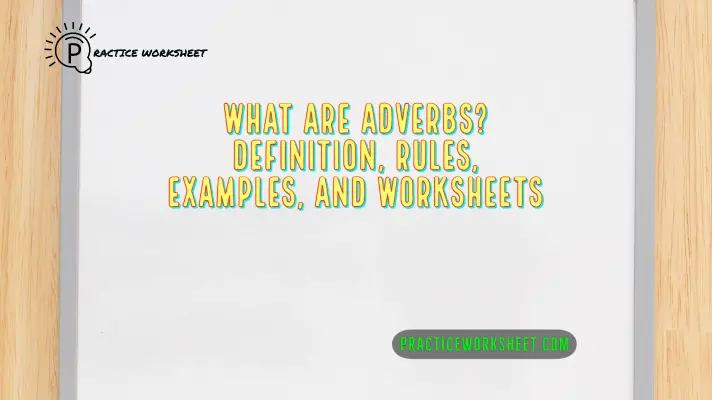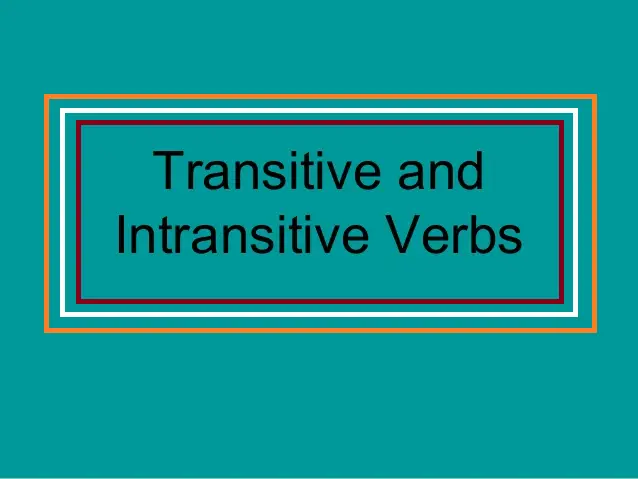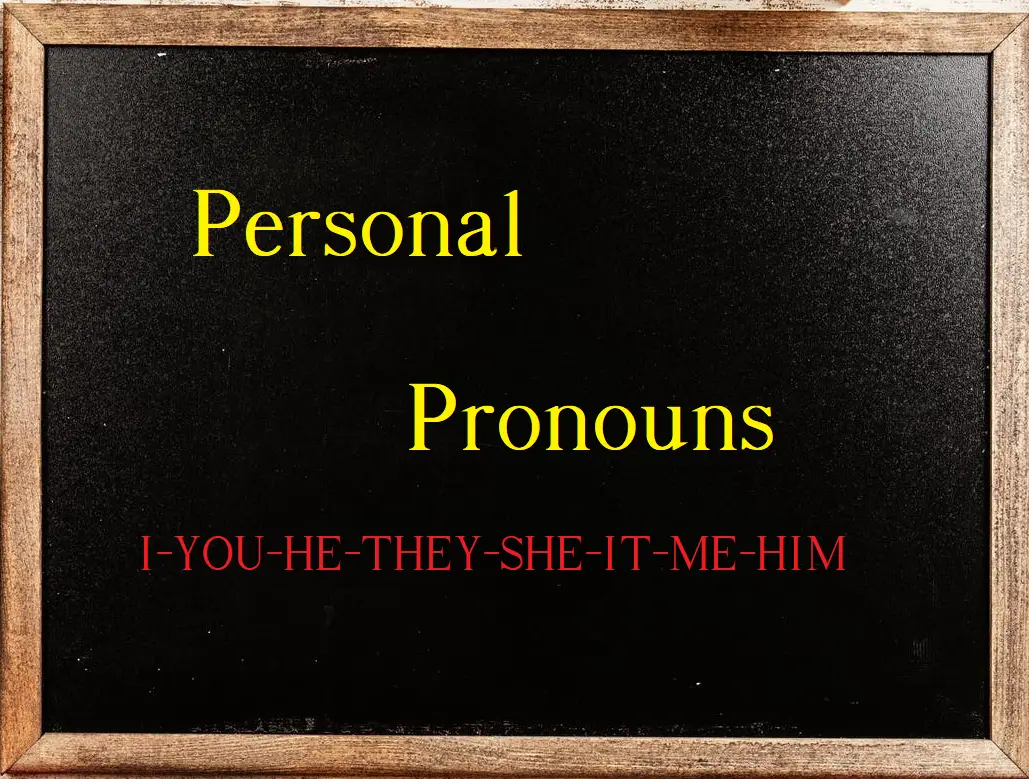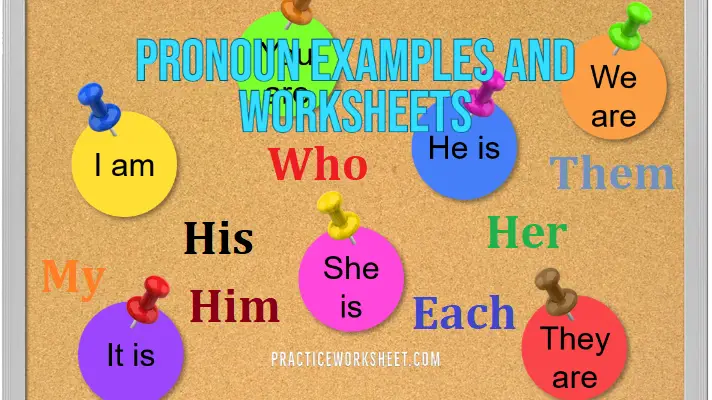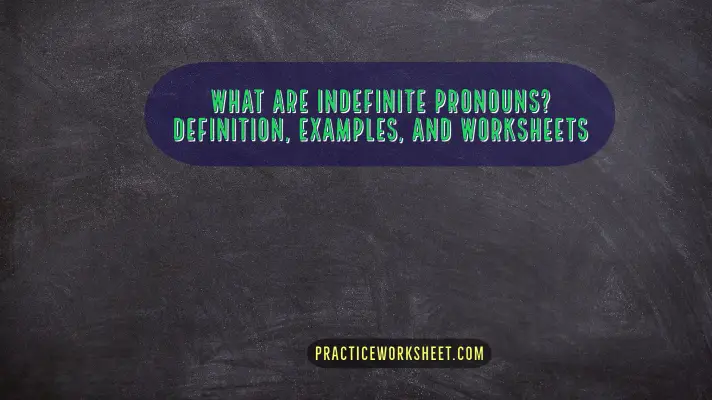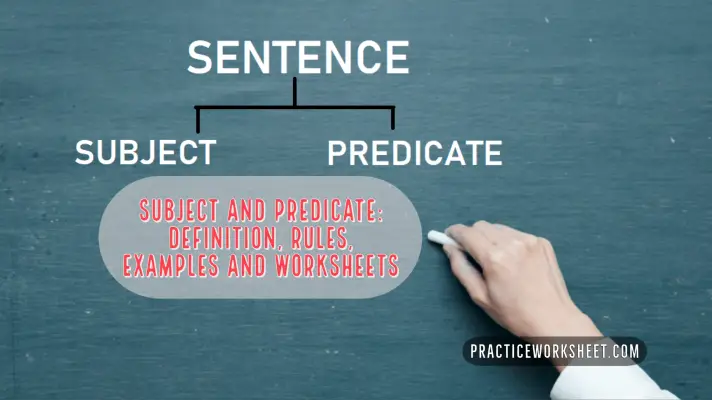Today we will explore more about possessive pronouns. Let’s start with the definition first.
What is a Possessive Pronoun?
Possessive means something belongs to someone. So, Possessive pronouns are defined as the pronouns that demonstrate ownership. So, it specifies that someone is the specified owner of some particular thing. There are twelve possessive pronouns in English Grammar. Examples of possessive pronouns are my, mine, his, her, hers, our, ours, your, yours, their, theirs, and its.
Note that possessive pronouns in English are never spelled with apostrophes.
Types of Possessive Pronouns
Possessive pronouns are sometimes grouped into two classes; Absolute possessive pronouns and Weak possessive pronouns.
Absolute or Strong possessive pronouns are used to replace a noun or noun phrase to avoid repetition. Examples of strong possessive pronouns are mine, yours, his, hers, its, ours, yours, and theirs. They are also known as independent pronouns as they can be used without a noun.
Weak possessive pronouns function as determiners in front of nouns. They are also known as possessive adjectives. Examples of weak possessive pronouns are your, his, my, her, its, our, and their.
Note that, depending on the use of nouns in a sentence the pronouns his and its can be strong or weak possessive pronouns.
Examples of Possessive Pronouns in sentences
Let’s look at some of the basic examples of possessive pronouns used in sentences.
- This is her bag.
- The pen is mine.
- That house is theirs.
- Uttam takes pride in his beliefs.
In all the above sentences the bold pronouns are possessive pronouns.
List of Possessive Pronouns
As already stated above that there are twelve personal pronouns used in English language as listed below:
- My
- Mine
- Your
- Yours
- Our
- Ours
- His
- Her
- Hers
- Its
- Their, and
- Theirs
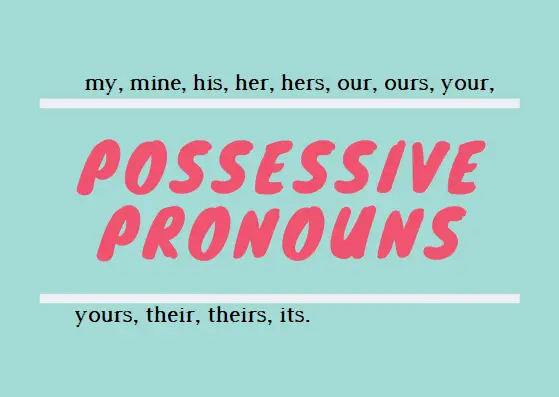
Possessive Pronoun Worksheets
As you have already learnt what does possessive pronoun means, let’s move on to solve some possessive pronoun worksheets.
Possessive Pronoun Worksheet 1: Identify the possessive pronouns in the following sentences and specify it’s type (Strong or Weak possessive pronouns)
- He is my brother. His name is Asim.
- Your story is just as exciting as mine.
- Your dog is adorable, but not as adorable as ours.
- Can I borrow your phone?
- Her eyes are blue in color.
- His song inspired me.
- I feel bad at his missing this opportunity.
- He prepared the cake without my assistance.
- Karuna is my friend but not his.
- Is this your toy?
Possessive Pronoun Worksheet 2: Rewrite the following sentences by replacing the bold phrases with possessive pronouns
- Ismat takes pride in Ismat’s drawings.
- Ravleen, come for the dinner. The dinner is ready.
- Plants are even more affected by plants’ surroundings than animals are.
- As Sahara is a desert, Sahara’s climate is hot and dry.
- An ant has two stomachs in the ant’s abdomen.
- Ms. Swarnali has a farmhouse in Sodepur; the largest farmhouse in the neighborhood is Swarnali’s.
- As a cactus has few leaves, the desert sun can not evaporate all the cactus’s water.
- Sumita is told to pick a dress; the choice is Sumita’s.
- His ribbon is big and the ribbon’s color is blue.
